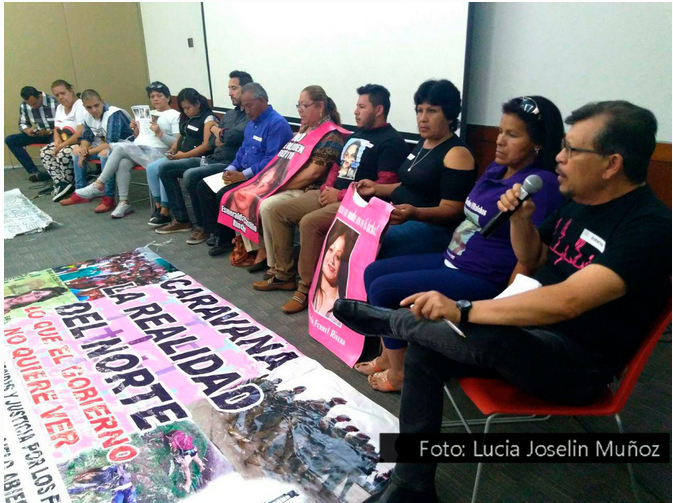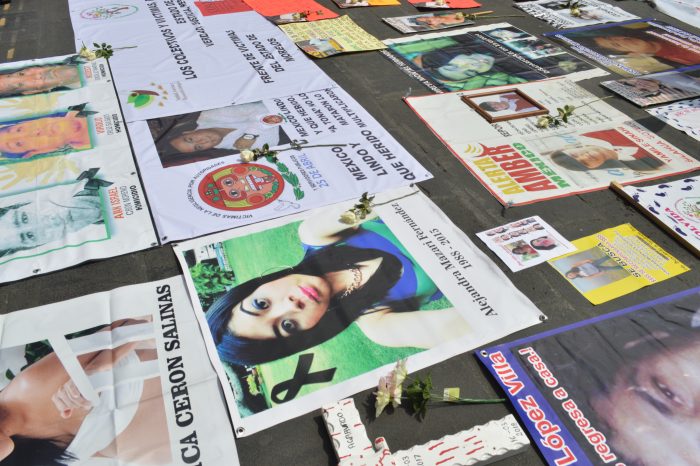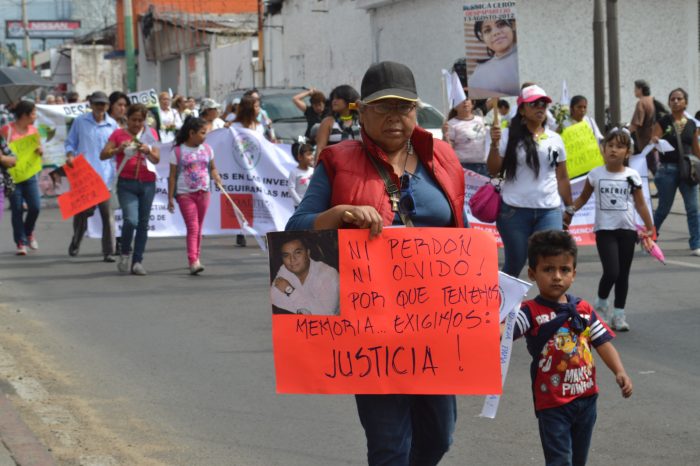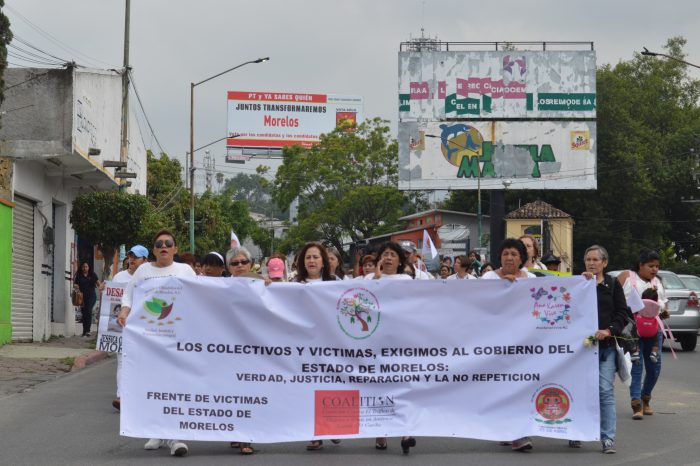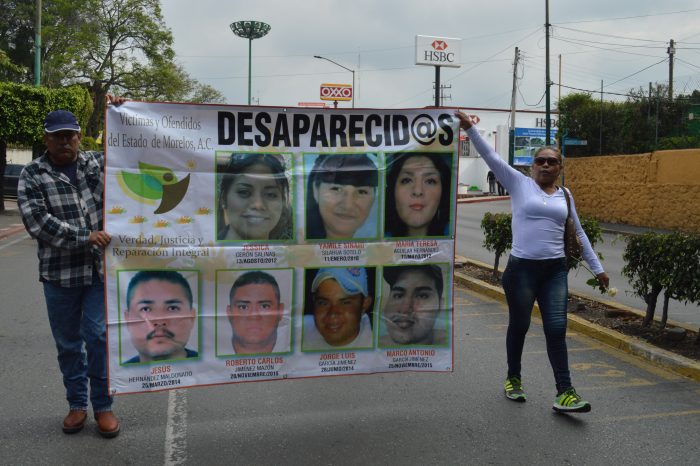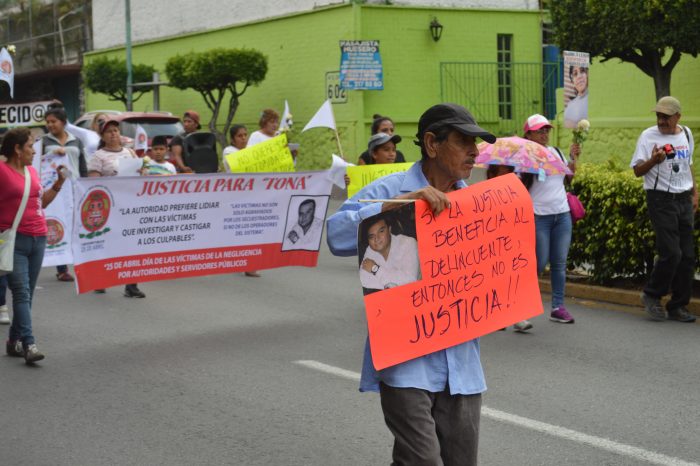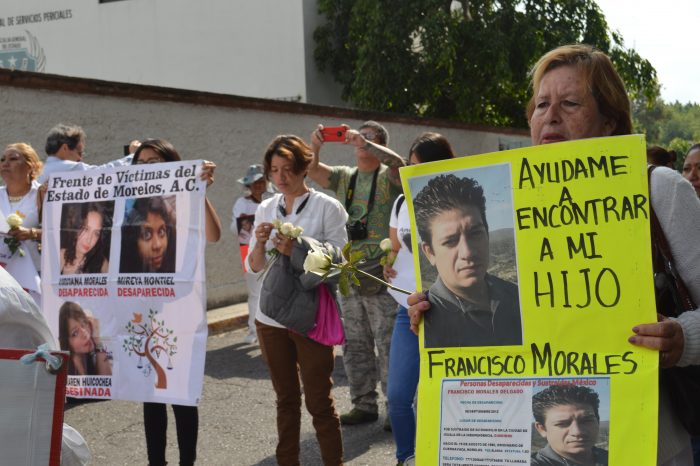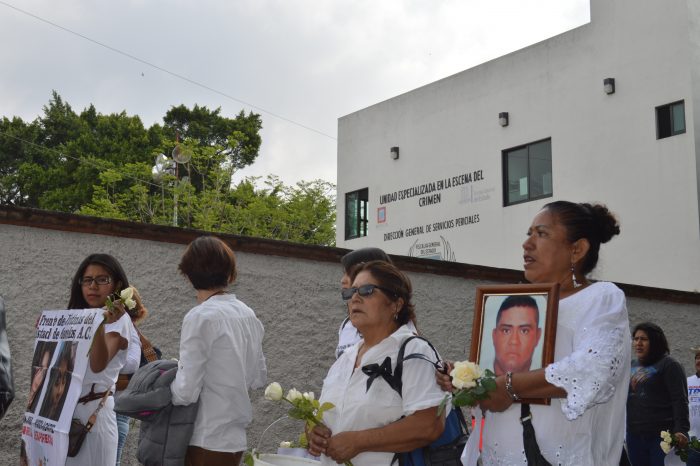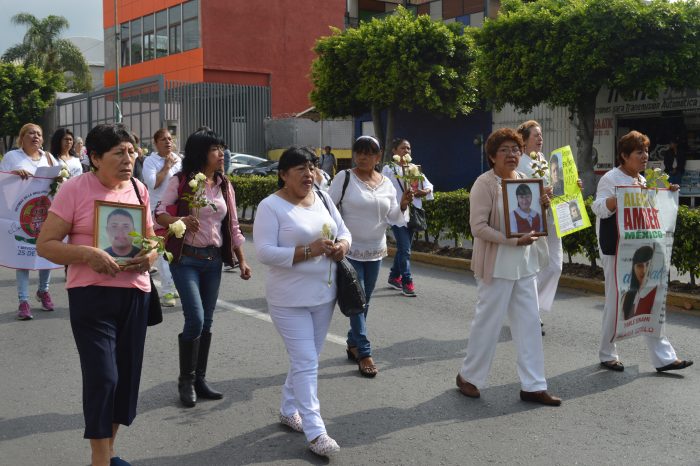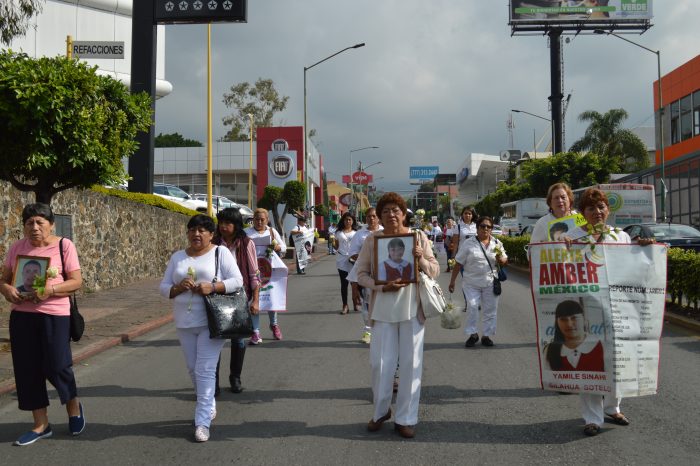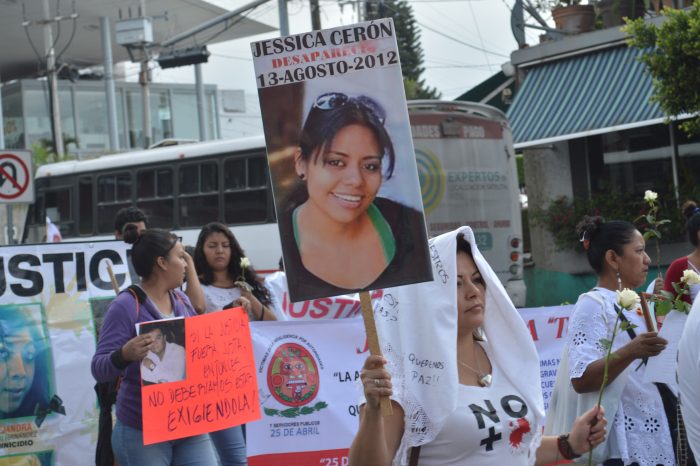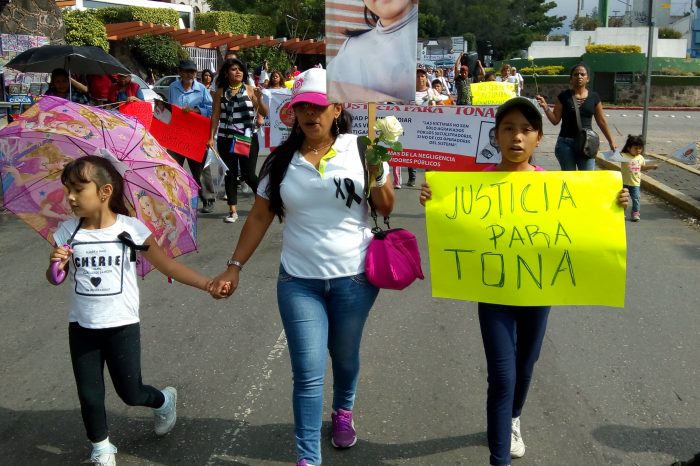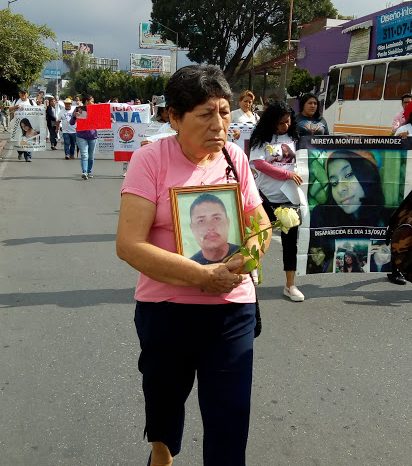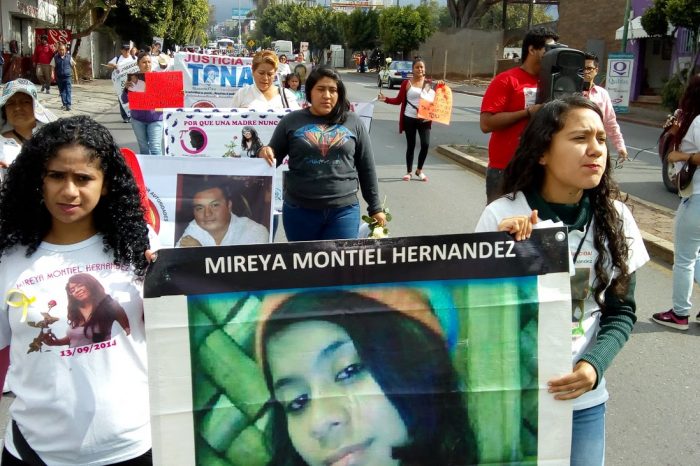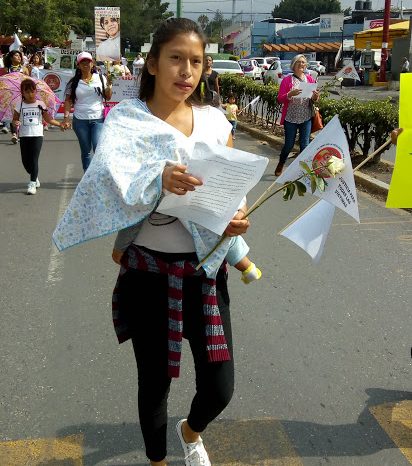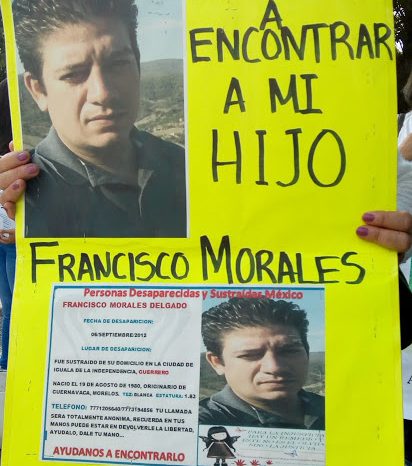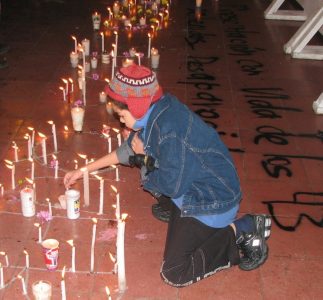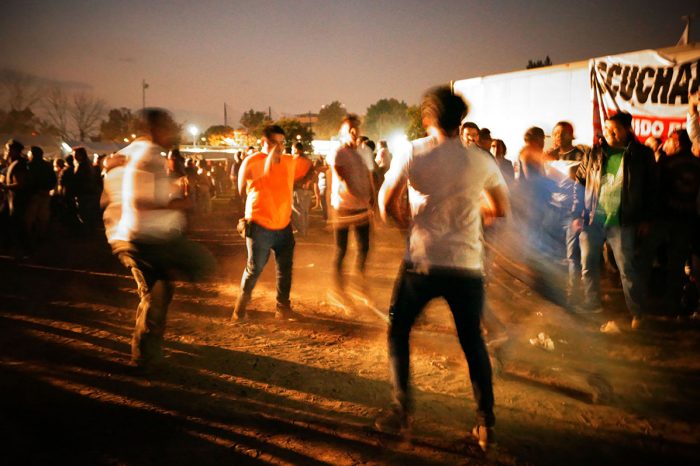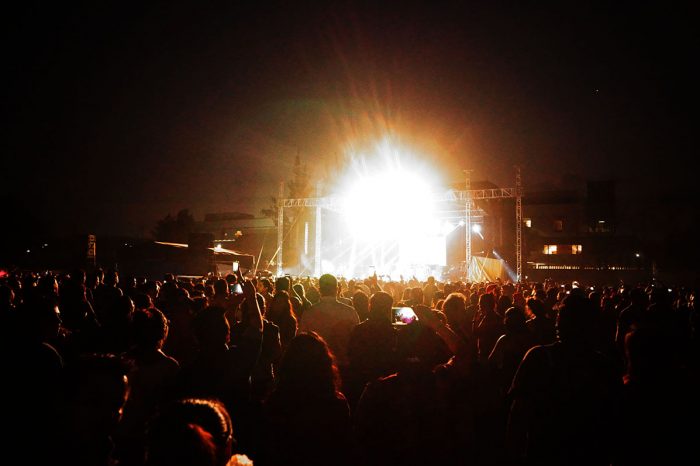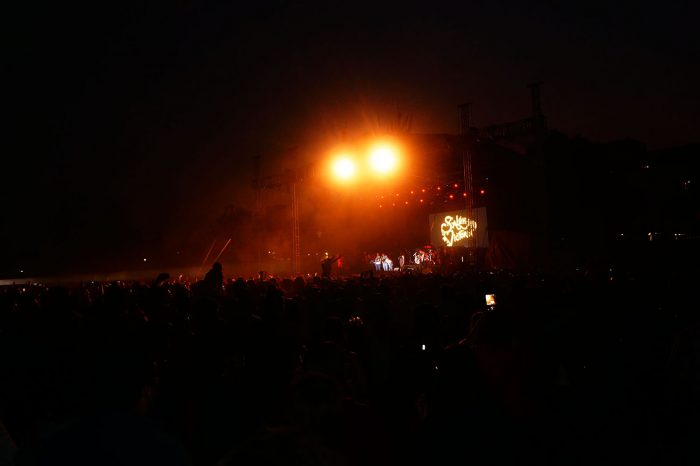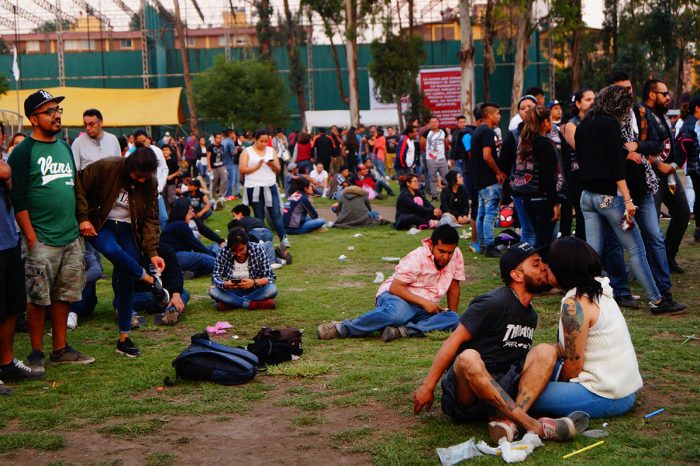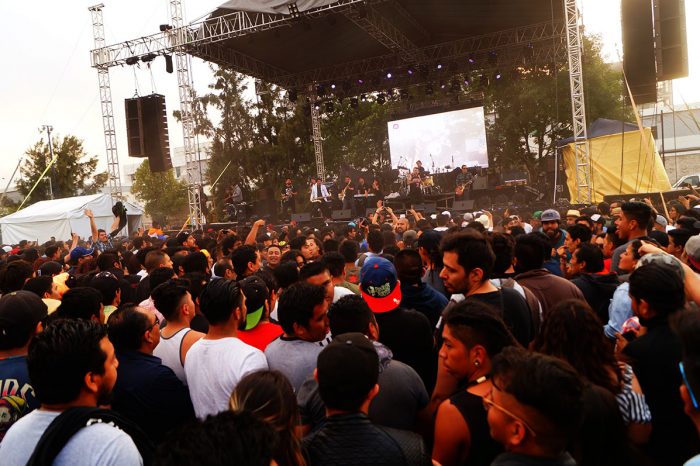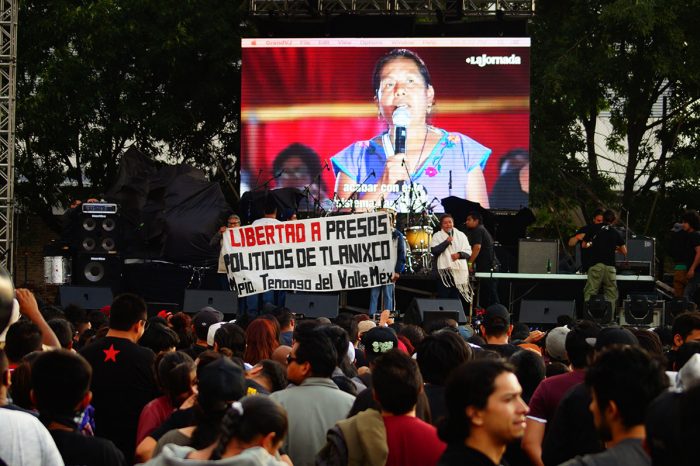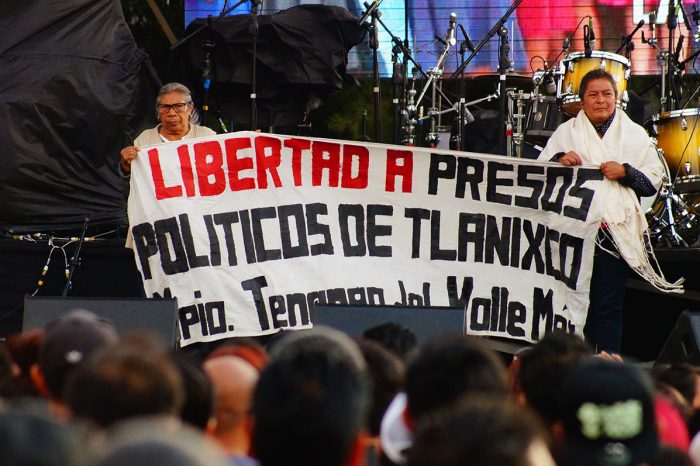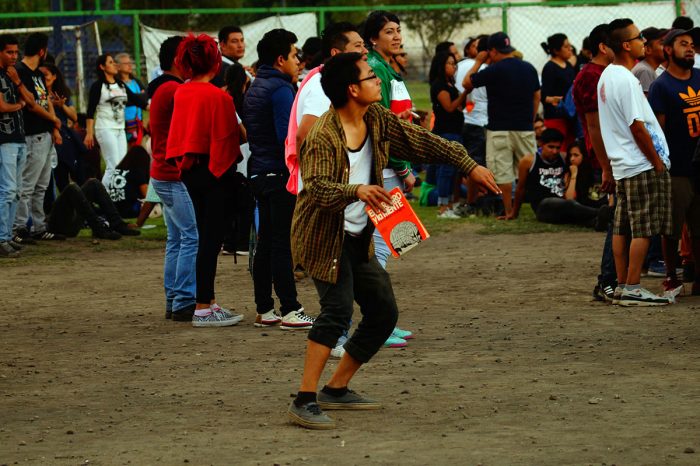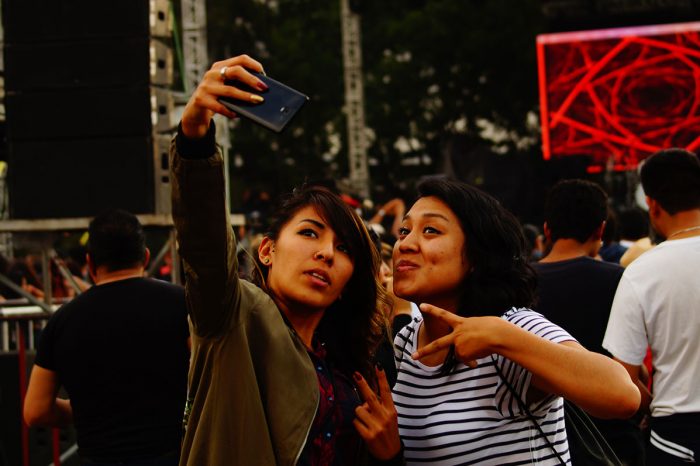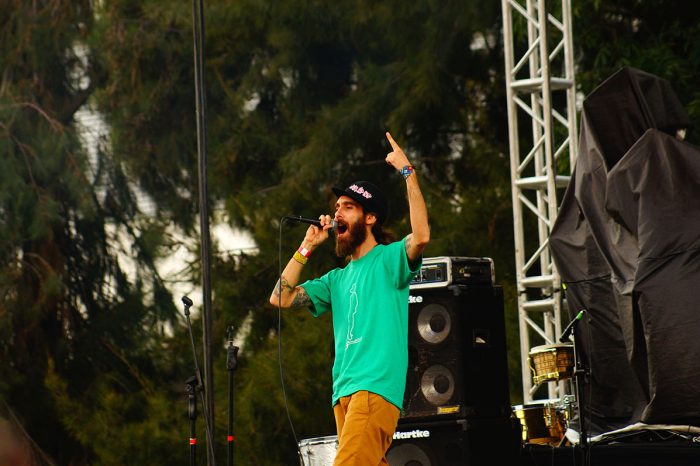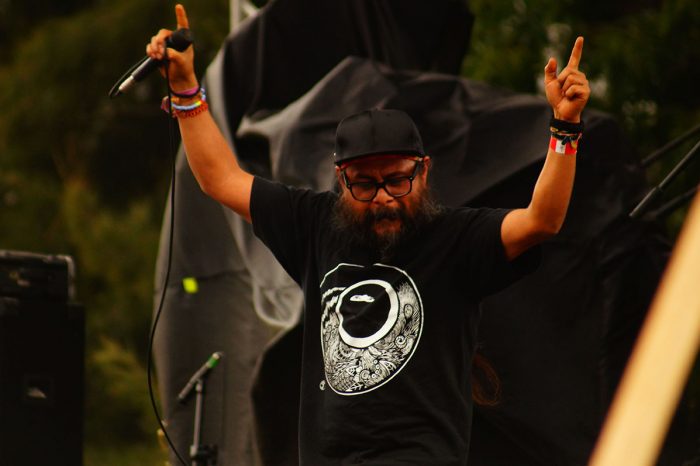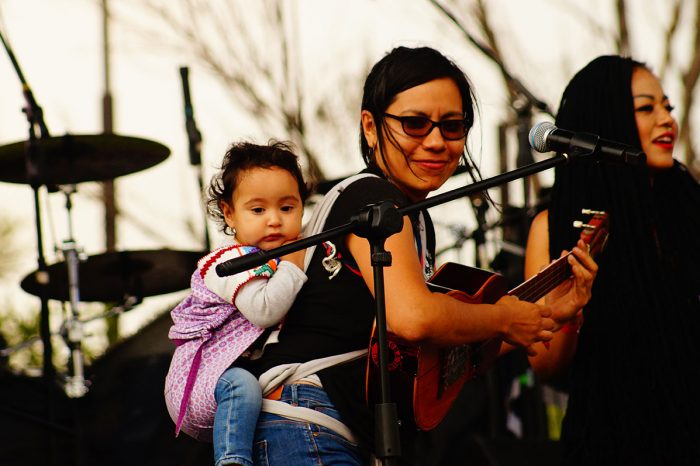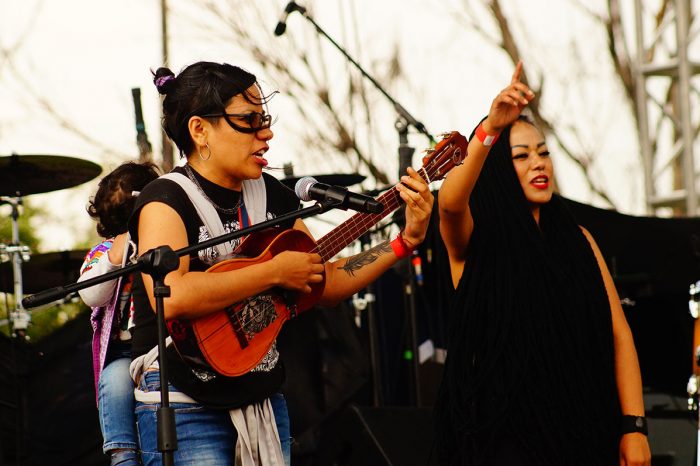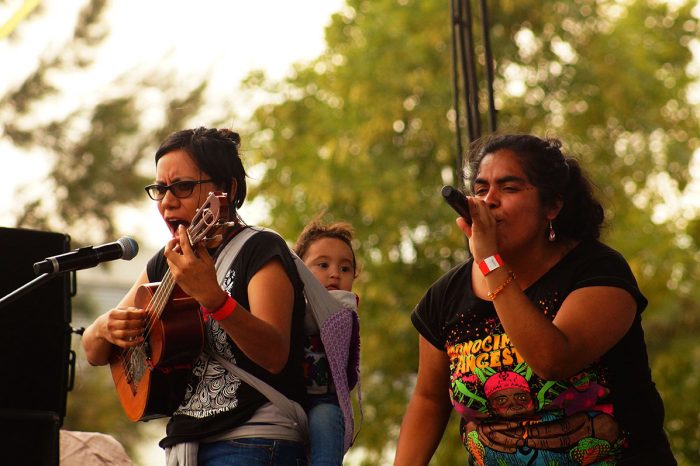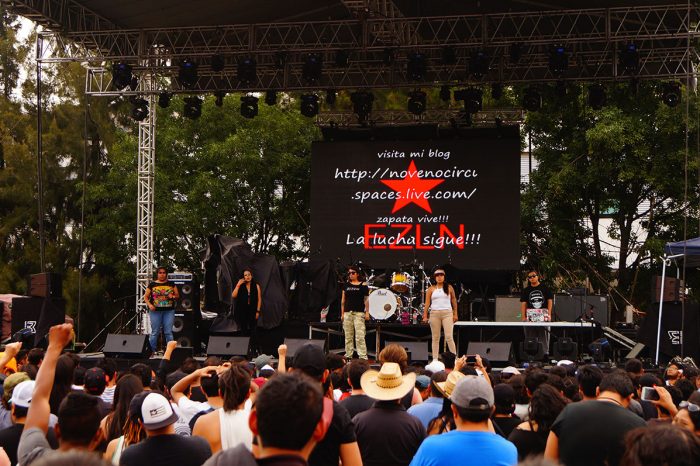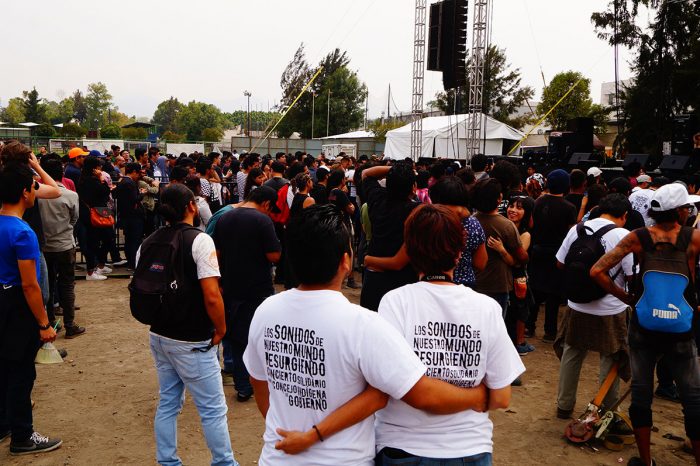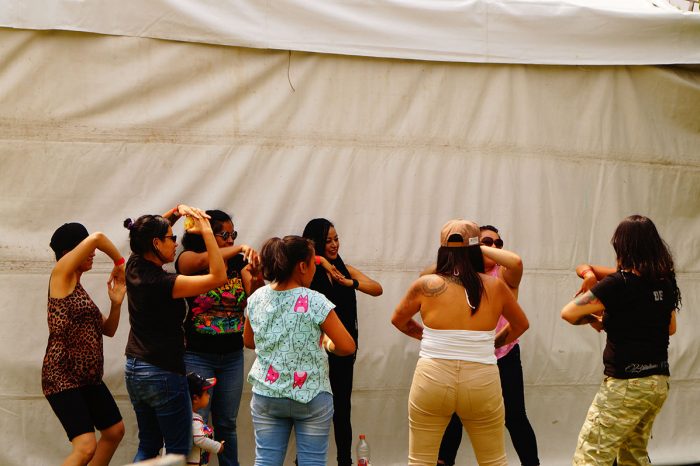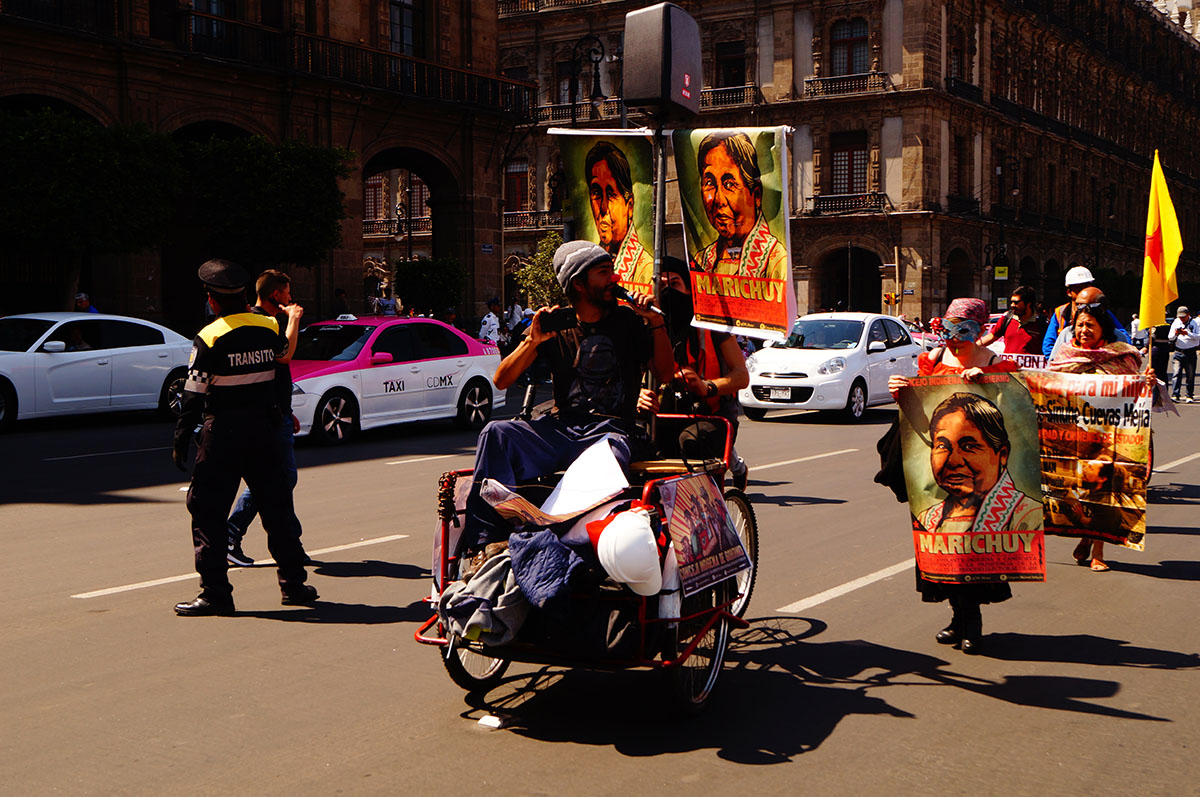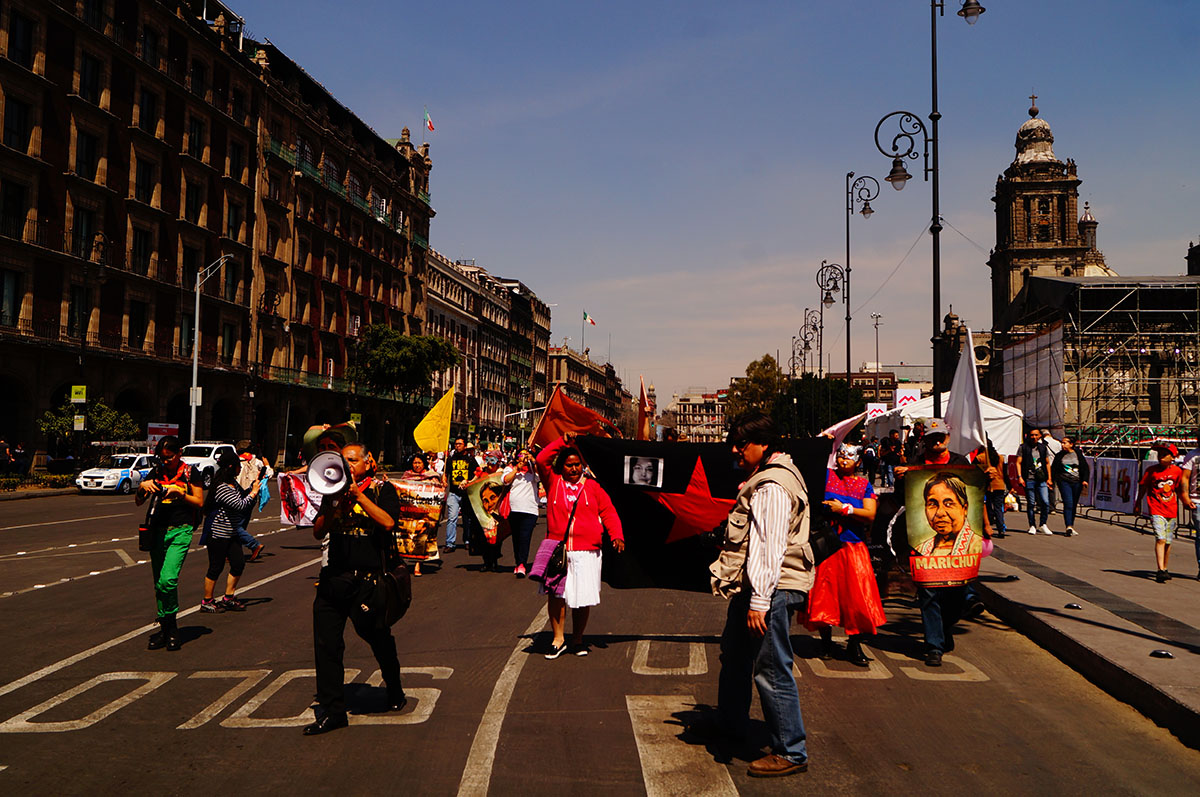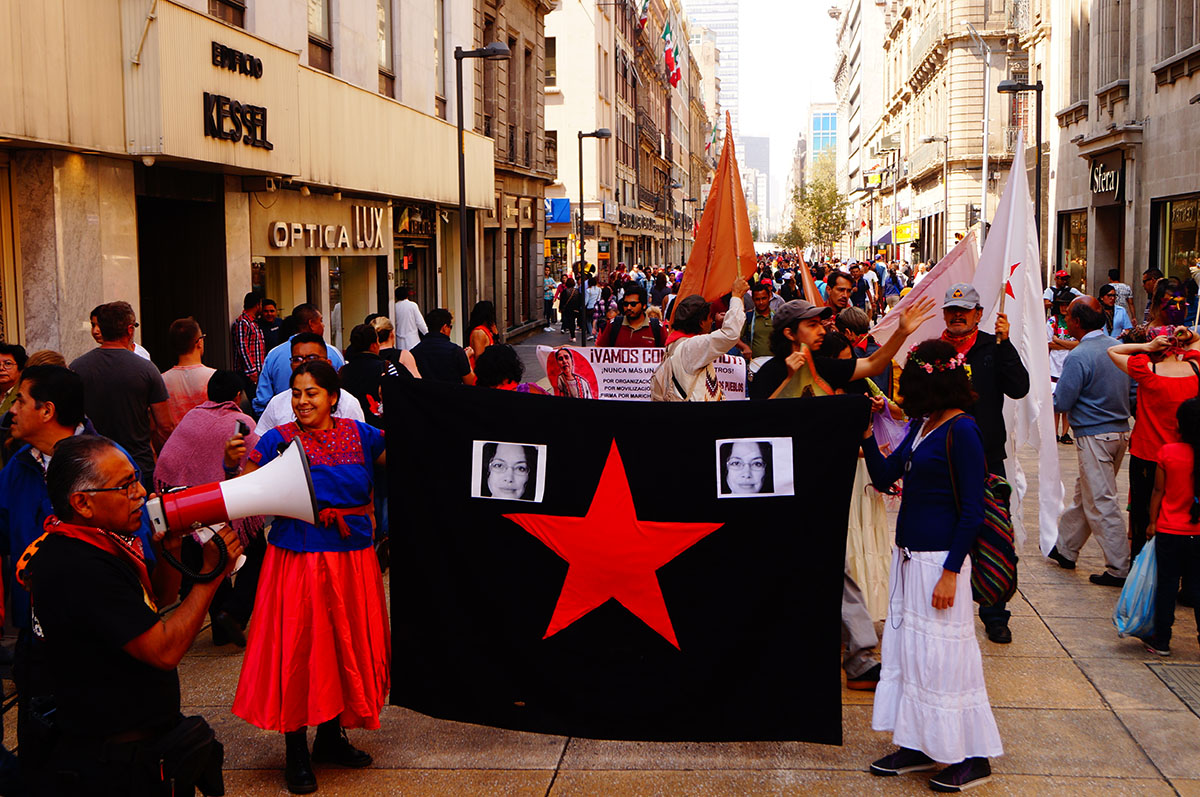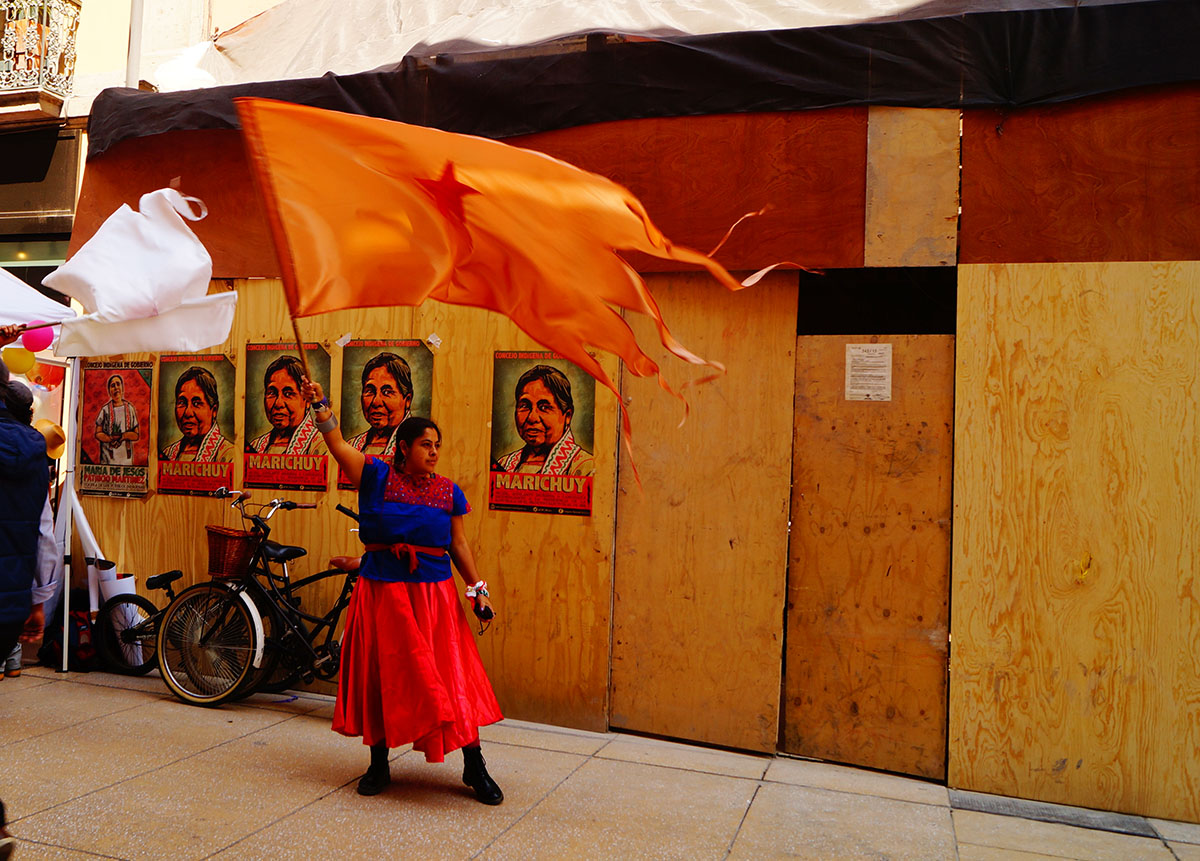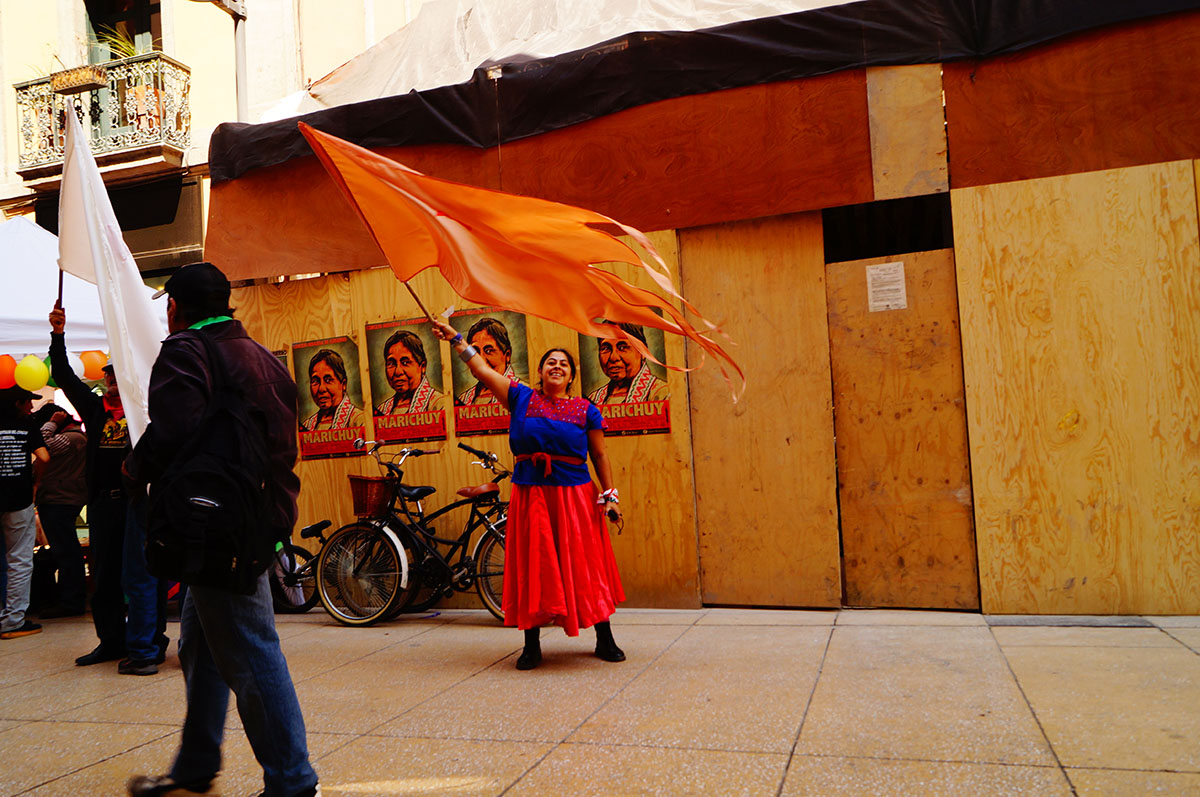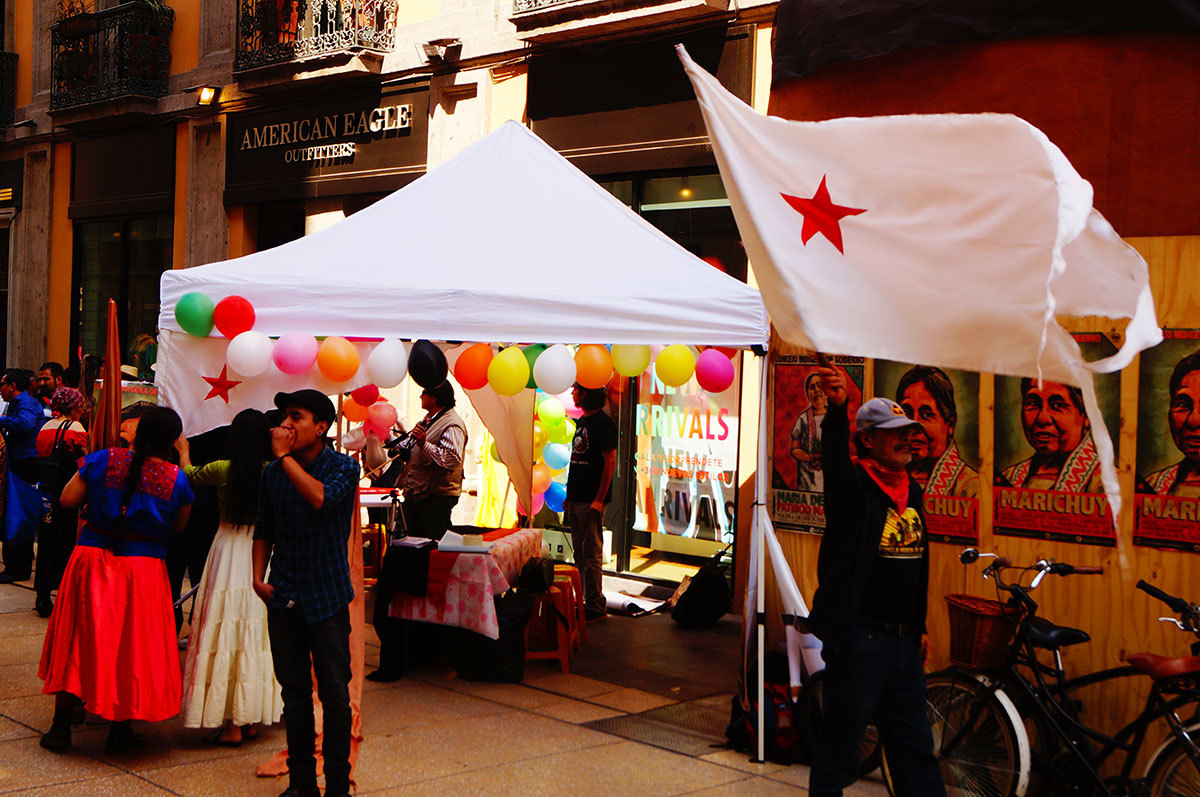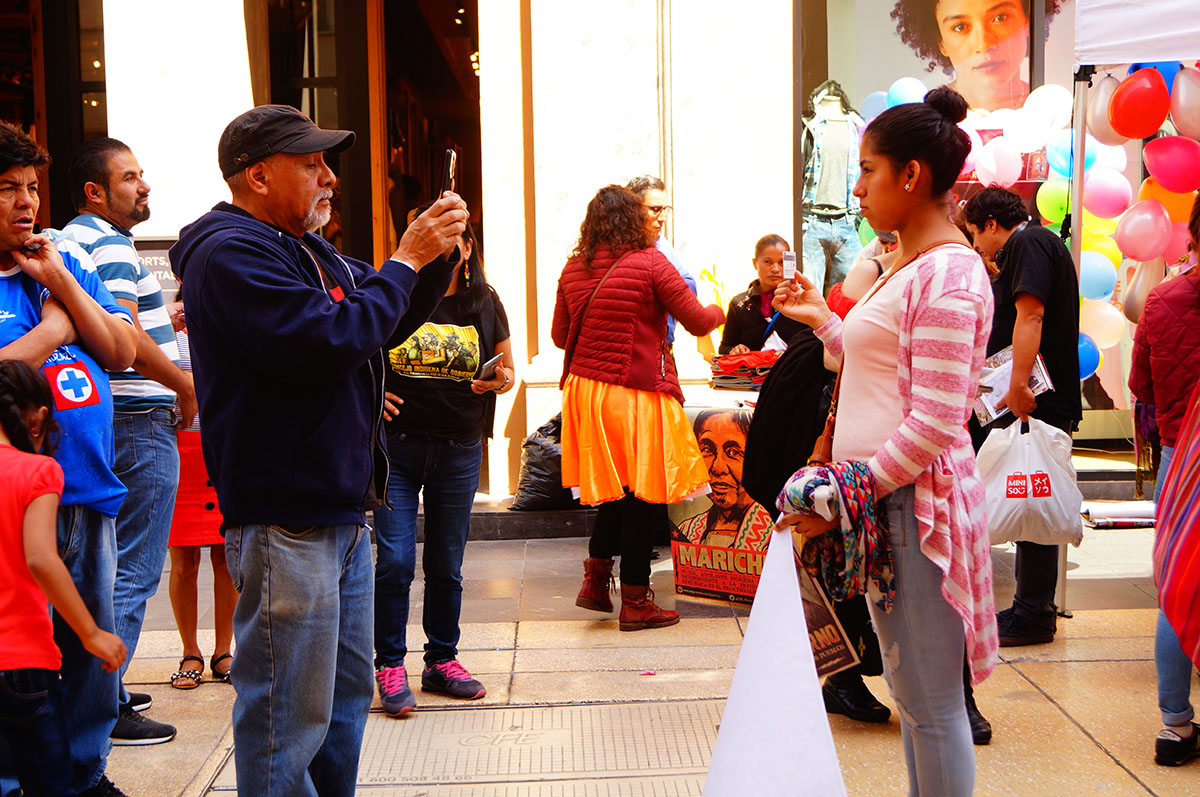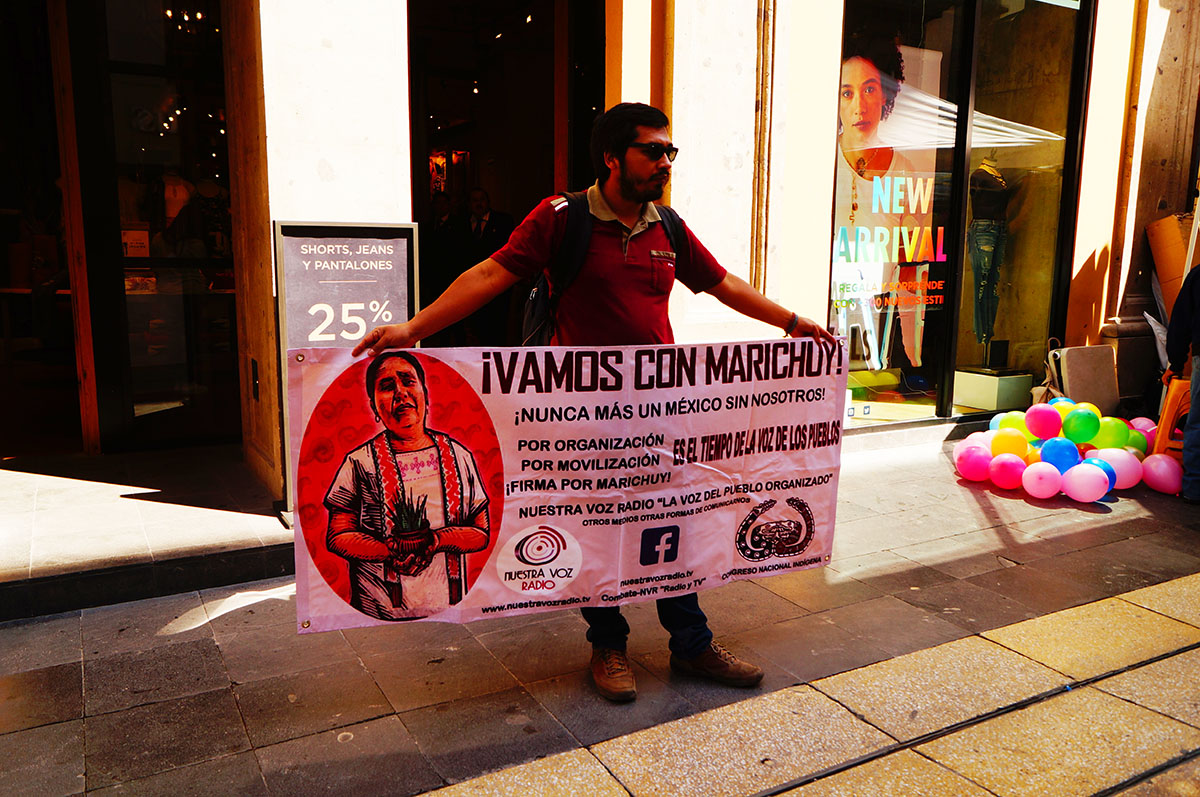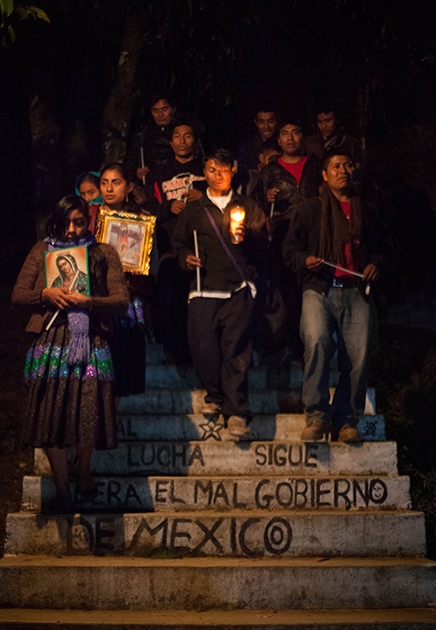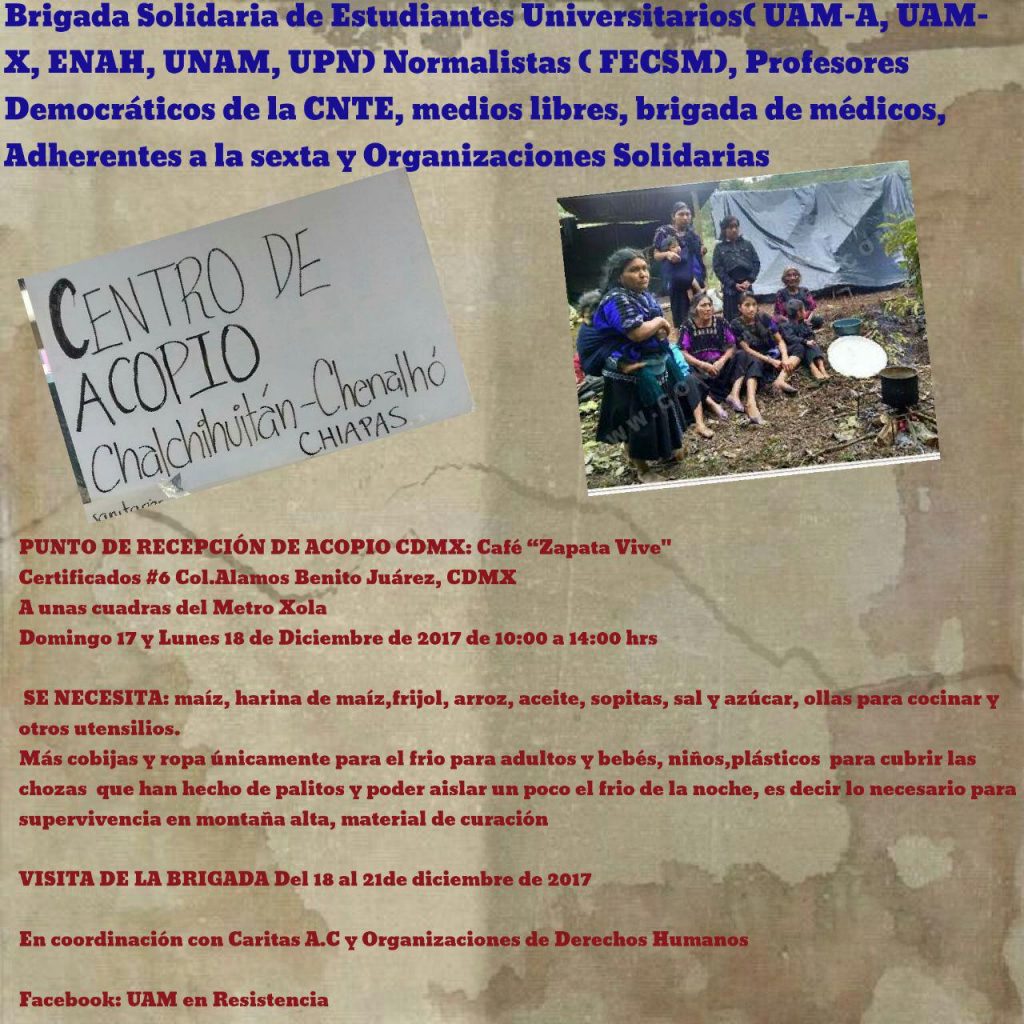
solidaridad
(Español) Violencia, feminicidios, desapariciones, devastación y ataques a ddhh es lo que vive Chihuahua: Caravana Norte
Por Lucia Joselin Muñoz.
CdMx. 25/05/18 (Surco Informativo).- La Caravana de la Realidad Norte llegó el día de ayer a la Ciudad de México, partió de Chihuahua el pasado 19 de mayo con el objetivo de denunciar la situación que se vive en el estado: “violencia agudizada, feminicidios, desapariciones forzadas, devastación de la naturaleza por los megaproyectos mineros, ataques a los derechos humanos, estigmatización de la protesta y las resistencias” denunció el académico Rosalio Morales, integrante de la caravana en conferencia de prensa.
Señaló también que hay una enorme pasividad e indolencia por parte del gobierno del estado que está pasmado “ante el desenfreno de la ganancia obscena”, asegurando que hay una discordancia entre el decir y el hacer del gobernador Javier Corral, quien por un lado proclama la soberanía de Chihuahua pero viaja a Canadá a entregar los recursos a las mineras, quien dice estar en contra de la Ley de Seguridad Nacional pero reclama la militarización del estado y a la Policía Federal en sus calles.
Otra de las contradicciones en que hizo hincapié la Caravana, es el hecho de que Javier Corral presuma la eficiencia de la Fiscalía del Estado, sin embargo, ésta no da resultados y recordaron casos como el de la periodista Miroslava Breach, asesinada el 27 de marzo de 2017 que aún sigue impune y como el de ella, apuntaron, hay muchos más en el estado.
Alejandro González, arquitecto originario de Valle de Juárez, denunció que la violencia es tal en Chihuahua que en su pueblo 19 casas de cada 20 están abandonadas debido a que los ciudadanos que las habitaban fueron asesinados o están desplazados, e indicó que la misma situación prevalece en todo el Valle de Juárez.
(Español) Madres del México herido caminan juntas
Texto, fotos y audios, Colectivo RZ.
México, mayo de 2018.
Jessica Cerón Salinas tiene 28 años y está a punto de dar a luz. Es 13 de agosto de 2012 y su familia la espera para una fiesta en Cuernavaca. Es cumpleaños de su hermana, Lizbeth. Toda la familia, reunida por el festejo, está lista para recibir al bebé de Jessica, a quien han comenzado a llamar Max. En una última llamada telefónica, Jessica les informa que ya se dirigen a la reunión. Pero Jessica y Max no llegan a la fiesta. Desde ese día, su hermana Lizbeth, su madre Celia y toda la familia comienzan una búsqueda que no termina. Unas horas antes, otra joven morelense desaparece. Es Viridiana Anaid Morales Rodríguez, estudiante de Psicología en la Universidad Autónoma del Estado de Morelos. Tiene 21 años y ha viajado con su esposo Roberto Altamirano López para festejar su primer aniversario de bodas en un campamento en el Estado de México. Pero Viridiana y Roberto tampoco vuelven.
Ríos de dolor materno empapan México. Miles de mujeres sin sus hijas e hijos pasan otro 10 mayo sin nada que celebrar. La tradición de antes llama a festejar nuestra ancestría y nuestra maternidad, pero la realidad genera una tradición nueva, la de hoy, una que nos empuja a recorrer calles, avenidas y plazas para no olvidar que, en tan solo una década, cientos de miles de personas han sido asesinadas y desaparecidas en nuestro país con absoluta impunidad. Quienes se reconocen como “madres del dolor” marchan en diez ciudades de los estados más heridos por la violencia incontrolable que nos golpea. En Cuernavaca, Morelos, decenas de familias se movilizan una vez más frente a la total indiferencia gubernamental. Aunque marchan con niñas y niños muy pequeños o en brazos, no hay un solo vehículo de tránsito que vigile su camino. Nadie las recibe en la Fiscalía General del Estado, nadie las escucha en las oficinas del palacio del gobernador Graco Ramírez Garrido.
En años recientes, el estado de Morelos ha visto crecer el horror de los crímenes y las desapariciones de la mano de la insensibilidad de sus instituciones. Las organizaciones civiles que destaparon los horrores cometidos en las fosas de Tetelcingo y Jojutla, donde la Fiscalía General “volvió a asesinar” a sus familiares al arrojarlos “como basura”, insisten en que no se cumplen los protocolos mínimos de comportamiento humano frente a una persona fallecida. Y si esos protocolos no importan, las familias fracturadas importan menos.
Las madres, los niños y las niñas, los familiares jóvenes y ancianos que marcharon este 10 de mayo lo han intentado todo. Como si habitaran un mundo paralelo, se han organizado para aprender lo necesario y hacer el trabajo que las autoridades no realizan. Rastreo y hallazgo de fosas clandestinas, papeleo legal, investigación de expedientes, redacción de nuevas leyes, seguimiento de protocolos, llamados a la solidaridad, entrevistas y conferencias, relatos, gritos. Este día de las madres se visten de blanco y llevan las flores que debieron recibir. Reparten entre la gente que las acompaña un listado de consignas que se han ido ajustando a los tiempos que vivimos: “¿Dónde están, dónde están, nuestras hijas dónde están, nuestros hijos dónde están?” “Únete, únete que tu hija puede ser, que tu hijo puede ser” “¿Por qué los buscamos? Porque los amamos”. “Las madres en la calle no hay nadie que las calle”. Son las voces heridas de mujeres y familiares articulados en el Frente de Víctimas del Estado de Morelos, exigiendo “verdad, justicia, reparación y no repetición”.
Después de una larga caminata por la ciudad, un breve acto en la Plaza de Armas de Cuernavaca. Las familias y las madres se congregan en un memorial que es prueba irrefutable de la negligencia gubernamental. Colocan decenas de mantas y fotografías de quienes no están con ellas. Rodeadas por periodistas y grupos de apoyo, leen un boletín de prensa. Dicen que “los candidatos deberían tener en sus propuestas el tema de que le van a dar solución a las víctimas”, pero saben que no lo harán. “Creer, no creemos en nada”. Lo que las acerca a las autoridades, señalan, “es la esperanza”. Luego, el pase de lista de cada persona ausente, otra nueva tradición mexicana.
Entonces, los mariachis que no saben faltar, entonan lo mismo que están escuchando millones de madres en todo el país. Sólo que, aquí, Juanga y Denisse se sienten de otro modo. Cuando resuena el “tú eres la tristeza, ay, de mis ojos” la fortaleza de estas madres se vuelve llanto colectivo. Se acompañan, se abrazan y se identifican. Luego cada “guerrera invencible” se recupera y se retira para cumplir la promesa que llevan años gritando: “De norte a sur, de este a oeste, yo te encontraré cueste lo que cueste”.
A continuación, reproducimos audios con las palabras de madres, abuelas y hermanas de personas desaparecidas y asesinadas en Morelos en los últimos años, quienes explican cuál es su búsqueda y cómo se han organizado y articulado para caminar juntas:
[podcast]https://radiozapatista.org/wp-content/uploads/2018/05/analuisagarduno.mp3[/podcast]
Charla con Ana Luisa Garduño, madre de la joven asesinada Ana Karen Huicochea.
[podcast]https://radiozapatista.org/wp-content/uploads/2018/05/edithernandez.mp3[/podcast]
Charla con Edith Hernández, hermana de Israel, cuyo cuerpo fue hallado en las fosas clandestinas de Tetelcingo.
[podcast]https://radiozapatista.org/wp-content/uploads/2018/05/madrejesicaceron.m3.mp3[/podcast]
Charla con Celia Salinas, madre de la joven desaparecida Jessica Cerón.
BOLETIN DE PRENSA
MILES DE MADRES EN ESTE DÍA NO TENEMOS NADA QUE CELEBRAR
